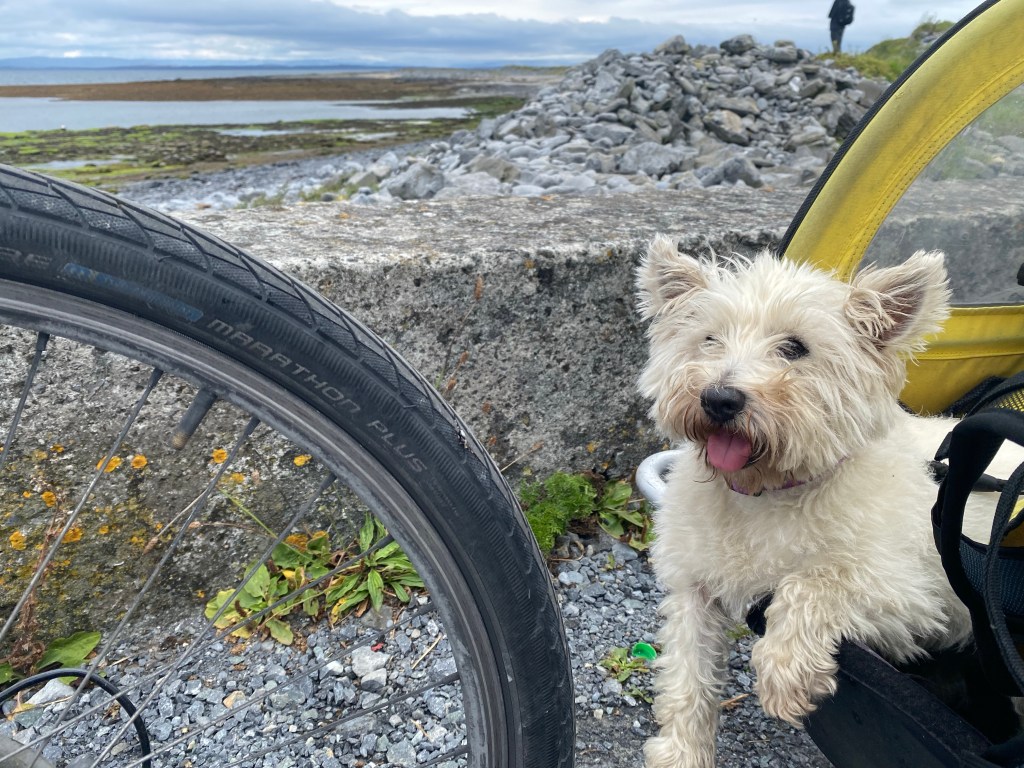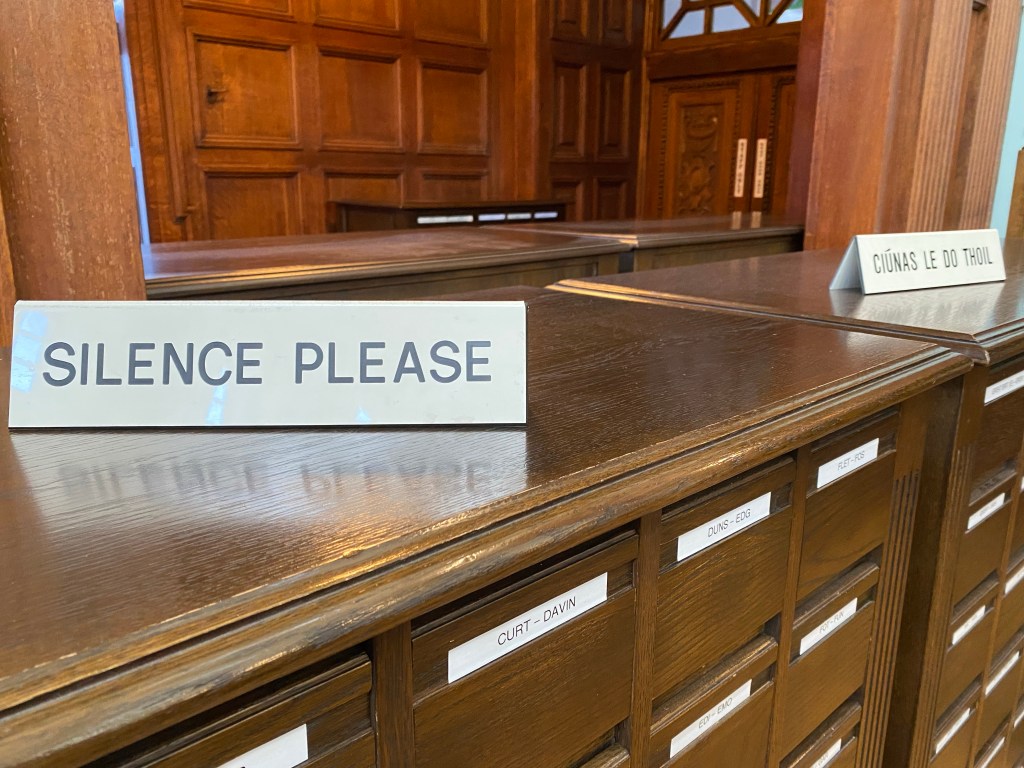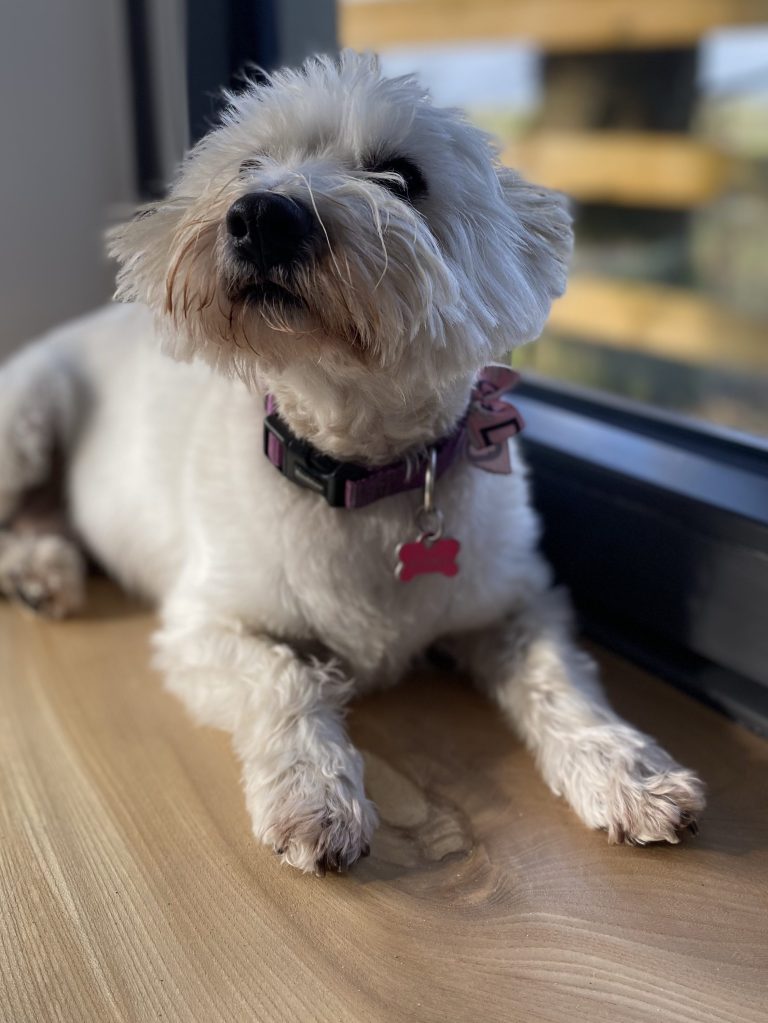
I’ll break from the chronological approach of the posts to date now and explore the impact of sudden hearing loss. I haven’t completely lost my hearing and the capital D Deaf community might read this and say “get a grip”, but it’s hard to convey the wide-ranging impact of suddenly losing perfect hearing and the best way that I can think of is to put together a composite of some of the things I’ve noticed. Sudden hearing loss is a different beast to hearing issues that come on gradually over years. Like boiling a frog, gradual loss is more insidious with subtle, sometimes unnoticed changes, whereas waking up and being plunged into this situation is a challenge that some people with deafness or hearing loss never had to face.
The tinnitus greets me as I wake. My daily reminder of things you can lose in the night. In the early days the noise sensitivity meant that I wore a silicone earplug in the shower to quell my tinnitus that reacts to the sound environment around me (more about the nitty gritty of tinnitus in Tinnitus Talk). I leave the room if there’s a hairdryer on and quite quickly (unasked) my wife moves all the accoutrements of the morning hair routine into the spare room. Thankfully, neither of us end up in the spare room. I say my first sorry of the day when my wife says something that I miss. There are probably a few hundred sorrys every day. It wears you down.
Over breakfast I hear a description of James Joyce’s dinner scene from The Dead on the radio. The sumptuous spread is described in delicious detail. We’ve listened to the story the past few years while driving near the New Year Atlantic storms battering the coast of Clare. The dinner scene and the “fat brown goose“ remind me of festive feasts and the goose that graced my grandparents’ table in small town Mayo when I was a child. It evokes Christmases with a cast of now dead characters, with a wondrous outpouring of hospitality at miscellaneous relatives’ houses. There are card games late into the night where the table needs to be reinforced for all the bangs it will get through boisterous roars of laughter as it is thumped through successive games of 25. Joyce was living in penury in Rome when he wrote this passage in 1906, following a Christmas dinner of uninspiring pasta. I wonder if social situations like that will ever be the same again.
Listening to morning radio, I’m straining to hear over the squeals, rattling and remonstrations of three small people playing with Lego. A quick switch from Lego to piano by the eldest obliterates the show devoted to the 100th anniversary of the publication of Ulysses. She’s playing Vampire Weekend’s Harmony Hall. I’m learning how to filter signal from noise. The important part of this is determining what is signal and what is noise.
There is a need to develop a healthy tolerance of noise or distraction, being conscious of my children’s single shot at childhood. I need to get to a stage where I habituate to the tinnitus, but I wonder if my profound hearing loss and the severity of my tinnitus will affect this. Central to the adjustment process is the acceptance that I will miss things: spur of the moment jokes or quips that diminish with repetition, missing subtle asides and having a blank look when there’s uproarious laughter, but the moment will have passed me by. You could get frustrated when people say “nevermind” or “it was nothing”, but that’s all part of the deal. The key thing is to accept the elements of this that I cannot address through my own adjustments without withdrawing from the world, while also ensuring that I don’t taint the experiences of everyone around me.
I can’t hear and place traffic like I used to. This can be compensated for by looking all around and being very vigilant when crossing roads etc., but it makes cycling tricky as your situational awareness of vehicles and other road users is diminished. This extends to placing other people and animals. People regularly “sneak up” on me- formerly I would have heard them approaching from the left, but not now. The dog regularly scares the shit out of me by doing the same trick and licking my left hand out of the blue.

One of the circles of hell for me is rattling noises in the car. I can no longer find the source of noises and just have to get better at acceptance. Long car journeys are tricky with a combination of road noise and the kids shouting adding up to extra special tinnitus, sometimes evolving into a chorus of hammers banging anvils.
Another challenge is someone calling me from somewhere in the house. I shout “where are you?”, and the response is “here”. This does not help me. About a year in my family are now learning to say “upstairs”/“the kitchen” instead.
I live in silence now. Or the shitty silence where my brain is constantly searching for the sound input that has been lost. Music (playing and listening), radio, podcasts, audiobooks were all gradual casualties of hearing loss. It’s not a conscious decision. It just happens gradually over time and I realise that I haven’t put on a playlist in ages. My book count drops too. Like Pavlov’s dogs, I think I’ve been conditioned against sound by my tinnitus. I think the long term adverse effects of hearing loss like dementia or depression stem from these kind of changes. Doing housework or cooking, I never put on the radio in the background. If I’m out for a long walk- ambulando solvitar- No Podcast. Driving on my own- No Playlists. There is a price to pay for being in a noisy environment. I do it for work. I do it to have good times with my family. I do it to meet friends and socialise, but the hearing loss has changed everything. I’m not depressed about this, I’m not complaining, it’s not a conscious decision, I’ve just noticed that this is now how I now approach sound/noise.

At the outdoor pool, I’m messing with silicone earplugs and double swimming hats, eventually graduating to a chinstrap hat, looking like an eejit. An eejit with dry ears. I really need to protect my hearing. I haven’t had an issue with ear infections in the past but I want to avoid both swimmers’ ear and surfers’ ear as I’m reliant on one ear now. With the earplugs, I’m pretty deaf in the water. It’s hard to hear the instructor, but the people I swim with mostly know that I have hearing loss and I get the instructions repeated in the water. I find myself taking off my goggles to hear better, which sounds crazy. I later realise that I’m lip reading and looking for other cues from the instructor to aid my solitary plugged ear.
The sound of the haircut has changed. I can’t hear the nip, nip, nip, nip, of the scissors and the buzz of the clippers which disappear on the left side of my head. The dark side of the moon. I never knew the barber’s as a child. My mother was a hairdresser. We all benefited from her skills, honed in early 1970s Dublin with Peter and Mark Kavanagh in one of their early salons in O’Connell St. I got a regular Saturday evening haircut as part of the week in, week out routine of swimming, burgers and chips, bathtime, haircut and Chipsticks/Rancheros while watching TJ Hooker before bedtime. My current barber can’t believe that you can wake up with hearing loss. She has other customers with cochlear implants/implanted hearing aids. They do fine. Life goes on. Get busy living.
When I’m on my own, seeking silence, the dog sits with me.

Hearing loss is isolating. You say no to situations where you’ll struggle to hear or where your tinnitus may make it impossible to stay. This even extends to formerly social situations such as the fantastic Snámhaí Sásta sea swimming group in Spanish Point, Co. Clare. I can’t hear properly in the water and conversations that were easy are now few and far between. Family gatherings were mainly affected by COVID restrictions, but I’m sure that I would have dodged get togethers if they were going ahead. This extends to work functions too- where you’re quite likely to get the worst case scenario of a reverberant space with round tables. I consider what would have happened if I got SSNHL when I was 17 and, unfortunately, get talking to a friend of a friend who is in this exact situation.
I intermittently dip into the Facebook groups. I successfully dodged it for years, but access to people in a similar situation is important. A portal into other people’s lived experience of this process. I’m not “doing my own research”, more so accessing a community that I couldn’t otherwise. I read a post on a sudden hearing loss group and a woman was worried- her husband was complaining to her family about how he missed their life before hearing loss. Don’t we all buddy.
Another post is about someone sitting outside a social event in their car crying. Lots of commenters can relate. The louder the room, the louder the tinnitus. There seems to be very poor understanding of the type of tinnitus that travels with profound sudden hearing loss. It is not a single frequency intermittently present and reflective of hearing loss at a specific frequency range. It’s an orchestral cacaphony. A roaring waterfall. Water turning to steam on red hot rocks. You just have to leave the room. Giving somebody with this kind of tinnitus the generic advice of avoid stress, get plenty of sleep, avoid salt and using background noises is like telling someone with an acute mental health crisis to try mindfulness and exercise. I’ll come back to the tinnitus in more detail later.
Listening fatigue pushes me towards snippets of sleep in the evenings. I find myself lying on the couch at the end of the day, sometimes with a noise cancelling AirPod and the TV volume as low as possible (subtitles on). The noise sensitivity improves gradually with time.
At bedtime, I’ve one of the few deaf dividends- if I sleep on my hearing side, pretty much all sound is cut out, apart from the tinnitus, which bookends every day. I don’t know about you dear reader, but I need to turn over a few times before I can get to sleep. This means that I spend some of that time unable to hear. That beautiful liminal space between wakefulness and sleep has been changed now and our conversation and ruminations on our respective days are punctuated or limited now by me being intermittently deaf.